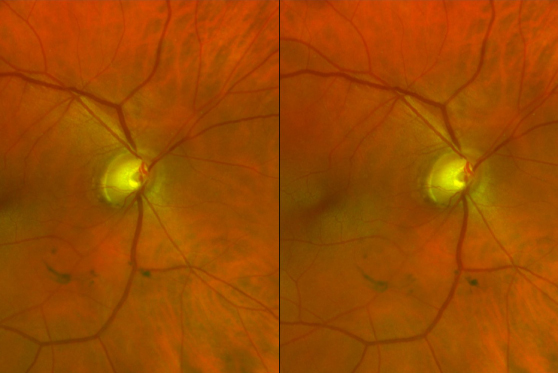Degenerative Glaucoma
Glaucoma is a degenerative eye disease that affects the optic nerve. It causes a gradual degeneration of cells, damaging your vision. Many of those afflicted with glaucoma do not even know they have the condition because the most common symptom is vision loss, which often occurs during the later stages of degeneration.
There are many theories about the causes of glaucoma, including high fluid pressure and lack of adequate blood supply to the nerve. For this reason, glaucoma can take one of several forms:
- Primary Open-Angle Glaucoma. Most common
- Angle-Closure Glaucoma. Less common. Takes the form of an acute attack, resulting in immediate vision loss.
- Secondary Glaucoma. Resulting from an eye injury or preexisting medical condition.
- Normal-Tension or Low-Tension Glaucoma. Eye pressure remains normal, but the person sustains injury to the optic nerve. It is still unclear why this occurs.

Who is at Risk for Glaucoma?
According to the CDC, more than 3 million Americans currently have glaucoma, and it is the second leading cause of blindness in the world! Typically, when a person experiences high eye pressure, they are at risk for glaucoma because of the extra pressure on the eye’s optic nerve. Other factors include age, race, and family history.
- Age: People over 40
- Race: More common in those who are African American or Hispanic
- Persons with diabetes
- Family history of glaucoma
- Eye trauma or nearsightedness
- Increase of pressure within the eye
- Corticosteroid Use
Glaucoma Treatment
There is no known cure for glaucoma, but there are plenty of treatments that will help you preserve your eye health. The first step is to regularly check your eyes with a comprehensive eye exam to catch signs of glaucoma early. Treatments for glaucoma include medications or surgical solutions. Patients with glaucoma need to continue treatment for their entire lives. With regular exams and consistent treatment, patients should be able to maintain healthy vision for as long as possible.

